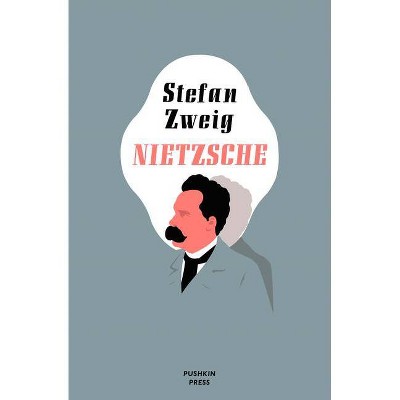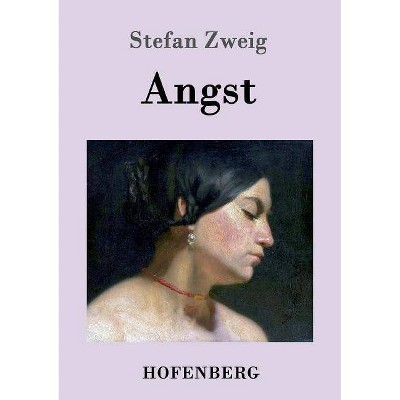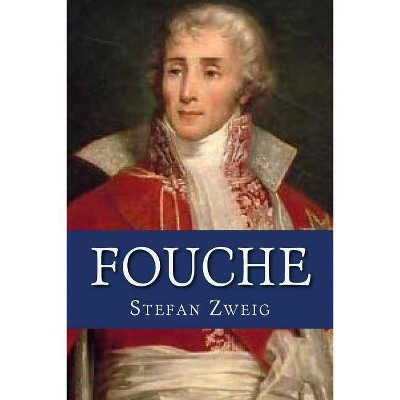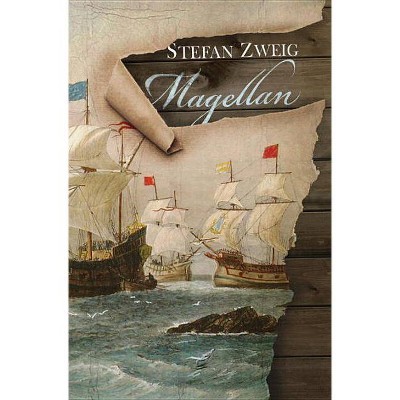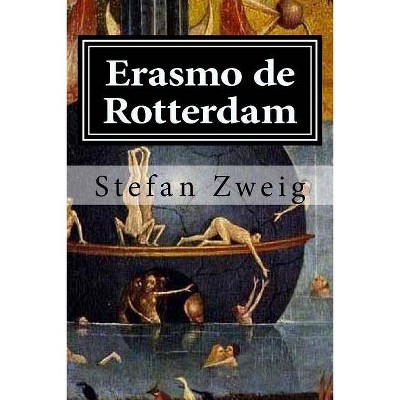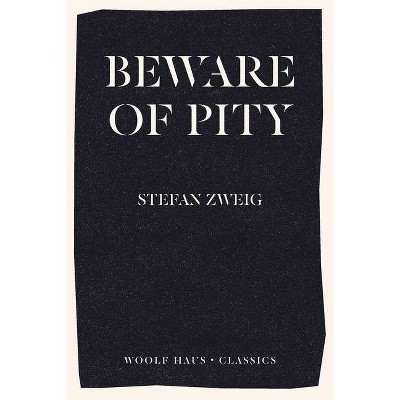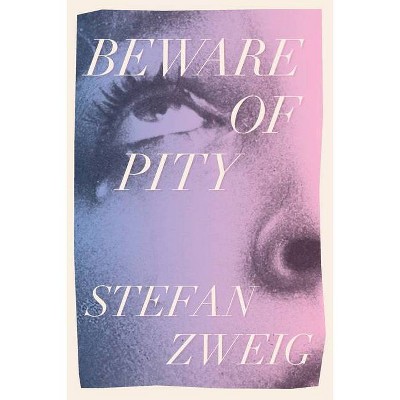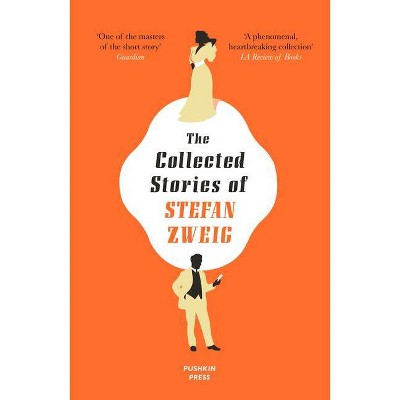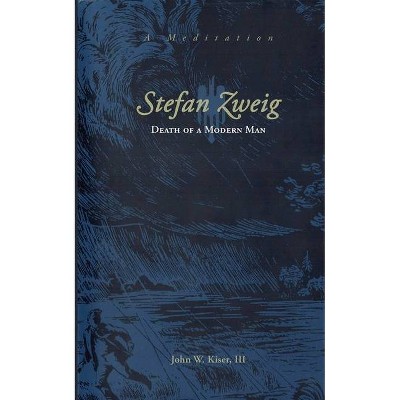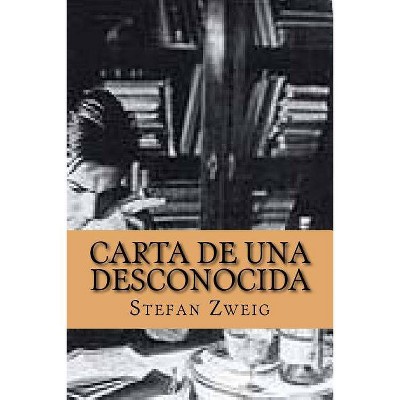Confusion - by Stefan Zweig (Paperback)
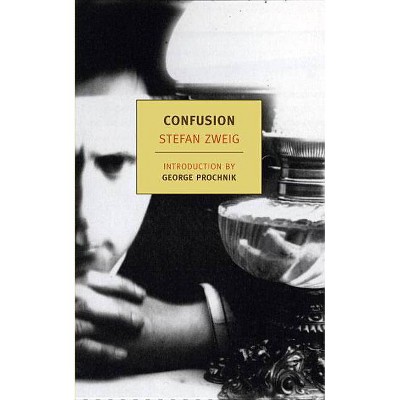
Similar Products
Products of same category from the store
AllProduct info
<p/><br></br><p><b> Book Synopsis </b></p></br></br>Stefan Zweig was particularly drawn to the novella, and <i>Confusion</i>, a rigorous and yet transporting dramatization of the conflict between the heart and the mind, is among his supreme achievements in the form. <p/>A young man who is rapidly going to the dogs in Berlin is packed off by his father to a university in a sleepy provincial town. There a brilliant lecture awakens in him a wild passion for learning--as well as a peculiarly intense fascination with the graying professor who gave the talk. The student grows close to the professor, becoming a regular visitor to the apartment he shares with his much younger wife. He takes it upon himself to urge his teacher to finish the great work of scholarship that he has been laboring at for years and even offers to help him in any way he can. The professor welcomes the young man's attentions, at least on some days. On others, he rages without apparent reason or turns away from his disciple with cold scorn. The young man is baffled, wounded. He cannot understand. <p/>But the wife understands. She understands perfectly. And one way or another she will help him to understand too.<p/><br></br><p><b> Review Quotes </b></p></br></br><br>"<i>Confusion</i> is one of his finest and most exemplary works . . . a marvelously poised account of misunderstood motives, thwarted love, and sublimated desires . . . a perfect reminder of, or introduction to, Zweig's economy and subtlety as a writer." --Robert Macfarlane, <i>The Times Literary Supplement</i><br> <i> </i><br> Passion and dedication . . . Outside the works of Plato, I don't think I have ever read a better or more honest account of what ill always remain at the heart of teaching --Gabriel Josipovici, <i> The Jewish Chronicle</i><br> <i> </i><br> <i>Confusion, </i>which I recently devoured at a sitting, is in essence a simple story. An elderly academic looks back on the most intense and formative relationship of his life. --Harry Eyres<i>, Financial Times</i><br> <i> </i><br> A brilliant writer. --<i>The New York Times</i><br> <i> </i><br> In fiction, I have been on a Zweig kick. In England over December, I noticed that many British newspapers' year-end recommenders were praising the Pushkin Press for reissuing several works by Stefan Zweig, a brilliant Austrian writer whose work brings to mind that of his compatriot Joseph Roth... these fictions are a treat of prewar European literature --Sylvia Brownrigg, <i>The New York Times</i> <p/> Zweig belongs with three very different masters who each perfected the challenging art of the short story and the novella: Maupassant, Turgenev and Chekhov --Paul Bailey <p/> One hardly knows where to begin in praising Zweig's work. One gets the impression that he actively preferred to write about women, and about the great moral crises that send shivers down the spines of polite society --Nicholas Lezard, <i>The Guardian</i> <p/> The secret superstar --Julie Kavanagh, Intelligent Life (<i>The Economist</i>) <p/> My advice is that you should go out at once and buy his books --Anthony Daniels, <i>The Sunday Telegraph</i> <p/> Admired by readers as diverse as Freud, Einstein, Toscanini, Thomas Mann and Herman Goering. --<i>The New York Times</i><br> <i> </i><br><p/><br></br><p><b> About the Author </b></p></br></br>Stefan Zweig (1881-1942), novelist, biographer, poet, and translator, was born in Vienna into a wealthy Austrian Jewish family. During the 1930s, he was one of the best-selling writers in Europe and was among the most translated German-language writers before the Second World War. With the rise of Nazism, he moved from Salzburg to London (taking British citizenship), to New York, and finally to Brazil, where he committed suicide with his wife. New York Review Books has published Zweig's novels <i>The Post-Office Girl</i> and <i>Beware of Pity</i> as well as the novellas <i>Chess Story</i> and <i>Journey Into the Past</i>. <p/>Anthea Bell is the recipient of the 2009 Schlegel-Tieck Prize for her translation of Zweig's <i>Burning Secret</i>. In 2002 she won the <i>Independent</i> Foreign Fiction Prize and the Helen and Kurt Wolff Prize for her translation of W. G. Sebald's <i>Austerlitz</i>. <p/>George Prochnik is the author of <i>Putnam Camp: Sigmund Freud, James Jackson Putnam, and the Purpose of American Psychology</i> and <i>In Pursuit of Silence: Listening for Meaning in a World of Noise</i>. He has written for <i>The New York Times, The Boston Globe, Playboy</i>, and <i>Cabinet</i>, among other publications.
Price History
Cheapest price in the interval: 14.99 on October 27, 2021
Most expensive price in the interval: 14.99 on November 8, 2021
Price Archive shows prices from various stores, lets you see history and find the cheapest. There is no actual sale on the website. For all support, inquiry and suggestion messagescommunication@pricearchive.us
